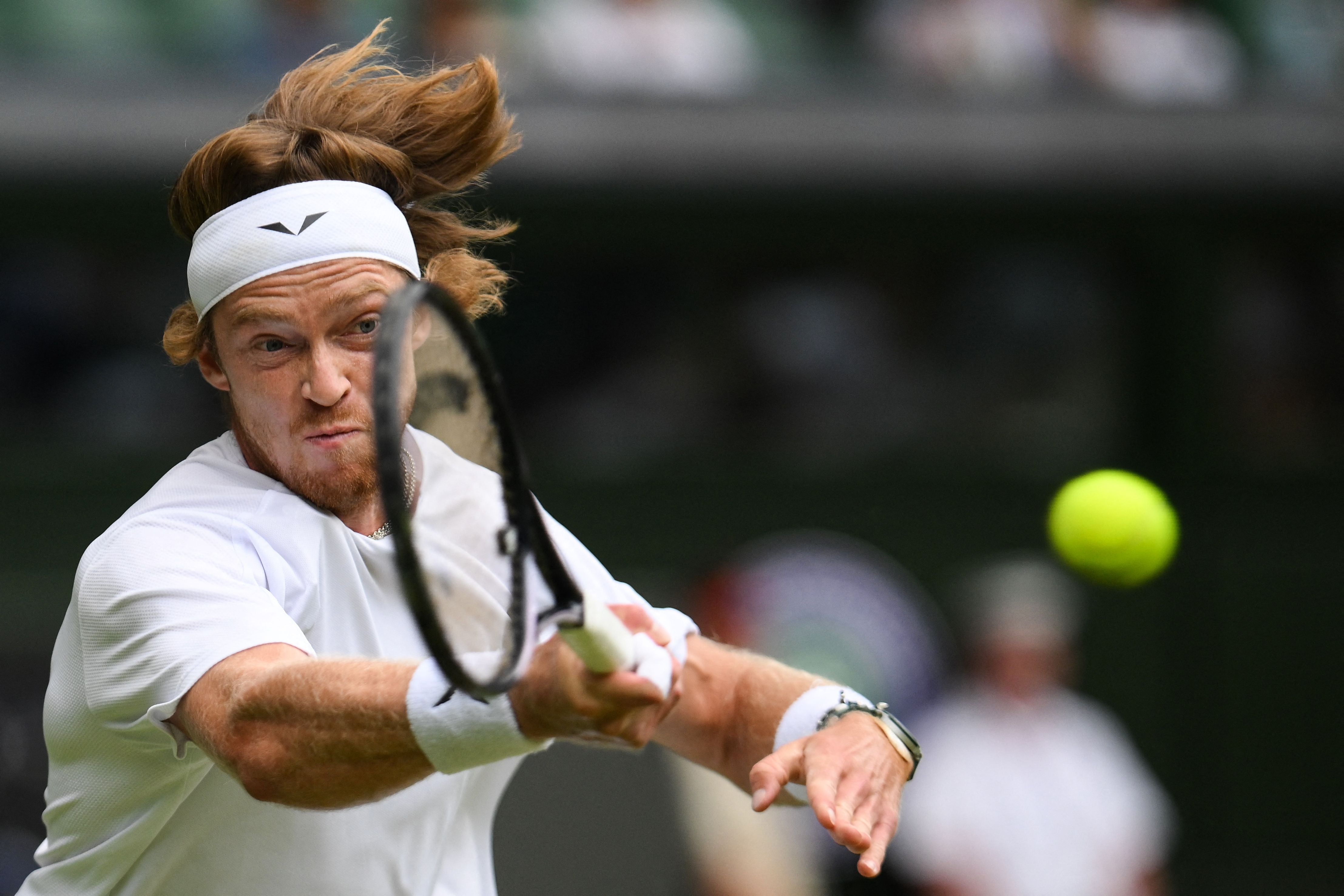The Independent's journalism is supported by our readers. When you purchase through links on our site, we may earn commission.
Wimbledon’s Russian players should be banned – it’s our moral duty
We should not derive any joy from seeing Russian tennis stars like Andrey Rublev and Daniil Medvedev parading their talents on the fabled Centre Court, writes John Carlin


In March 1992, two years after Nelson Mandela’s release from prison, South Africa held a historically decisive whites-only referendum on whether to proceed with negotiations aimed at the dismantling of apartheid. The “yes” vote won by a thumping 68 per cent.
Had South Africa’s cricketers not spent the previous two months down under thumping Australia – or, at any rate, giving as good as they got – the margin of victory in the referendum would have been finer – maybe the “no” vote would have won. That tour of Australia, blessed by Mandela, ended an international boycott of South African cricket that had lasted 22 years. Its effect on the country’s white population, a large proportion of whom followed the test matches on live TV, was electric.
It marked the beginning of a journey from darkness into light. The decades-long international boycott on all sports had taught ordinary whites that the benefits of apartheid came at a price. At the expense of the black majority, they enjoyed one of the highest standards of living on the world. But even the most apolitical among them understood that they were shunned and despised as no other people were. It was the refusal of the rest of the planet’s inhabitants to play with them, at anything, that brought home most sharply to every single white South African that they were the lepers of the world.
I was in South Africa in 1992 as a correspondent for The Independent. It was then I grasped the importance of the Australian cricket tour on white sentiment on the eve of the referendum, and witnessed the sense of liberation white South Africans felt later that same year when their team took part in the cricket World Cup, when the Australian rugby team visited. One could almost touch the collective mood of relief, the sense of a moral weight falling off white South African shoulders.
We’re not sinners any more! We’re absolved – or on our way to absolution, at least. The joyous final exorcism would come three years later when a beaming President Mandela handed over the rugby World Cup to the tall blond son of apartheid, the South African captain Francois Pienaar.
It is my experience of the six years I spent in South Africa – before and after the end of apartheid, before and after the international sports boycott – that places me firmly in the camp of those who believe that Russian sports players should be denied access to all international competitions, Wimbledon not excluded. The fact that I have recently returned from ten days reporting in Ukraine, and seen and felt the cruel absurdity of Russia’s war only reinforces my conviction.
Of the 50 or so Ukrainians I interviewed, I am certain that not one derives any joy from seeing Russian tennis stars like Andrey Rublev, who has now been knocked out, and Daniil Medvedev parading their talents on the fabled Centre Court. I have no doubt that they feel disgusted at the absence of solidarity it reveals.
If anything, an international boycott of Russian sports is even more necessary than it was in South Africa. This is not to minimize the ghastliness of “the moral genocide”, as Mandela called it, that was inflicted on black South Africans, and the systematic attempt it represented to exterminate a people’s self-respect. I am not comparing one abomination with the other.
What I am saying is that a sports boycott may be even more effective against Russia today than it was against South Africa in the second half of the 20th century. That it may be more necessary, because of the state of abject ignorance to which Vladimir Putin’s increasingly totalitarian regime has reduced the bulk of his country’s population.
The South African media was far freer under apartheid than the Russian media is today. South Africans had a far keener sense of international rejection. The sports boycott was one instrument of resistance among many, but it served more than most to inflict pain on the broad mass of the white population. In Russia, a country that has long sought to seize on the international prestige that sporting excellence brings, there can be few more effective ways of reaching the hearts and minds of ordinary people and teaching them a much-needed lesson than by excluding their sporting idols from the world stage. There is nothing the state-controlled media can do to stop the message from reaching every home.
“Oh, why aren’t we playing in the World Cup, in the Champions League, in world athletics competitions, or chess, or ice hockey?” Only the dullest Russian would fail to see that there is a direct connection between why nobody likes them and Putin’s “special military operation” in Ukraine.
Will this help bring about Putin’s fall? Probably not any time soon. It took a couple of decades of sports isolation before white South Africans finally experienced their change of heart. But even if Putin were to shrug off the political impact of a comprehensive international sports boycott, we should all go ahead and do it anyway. There is a moral imperative and a moral satisfaction, as there was during apartheid, in making a statement that speaks up for civilization against barbarism.
John Carlin is a British journalist and author. His book Playing the Enemy: Nelson Mandela and the Game that Made a Nation was the basis for the 2009 film Invictus






Join our commenting forum
Join thought-provoking conversations, follow other Independent readers and see their replies
Comments